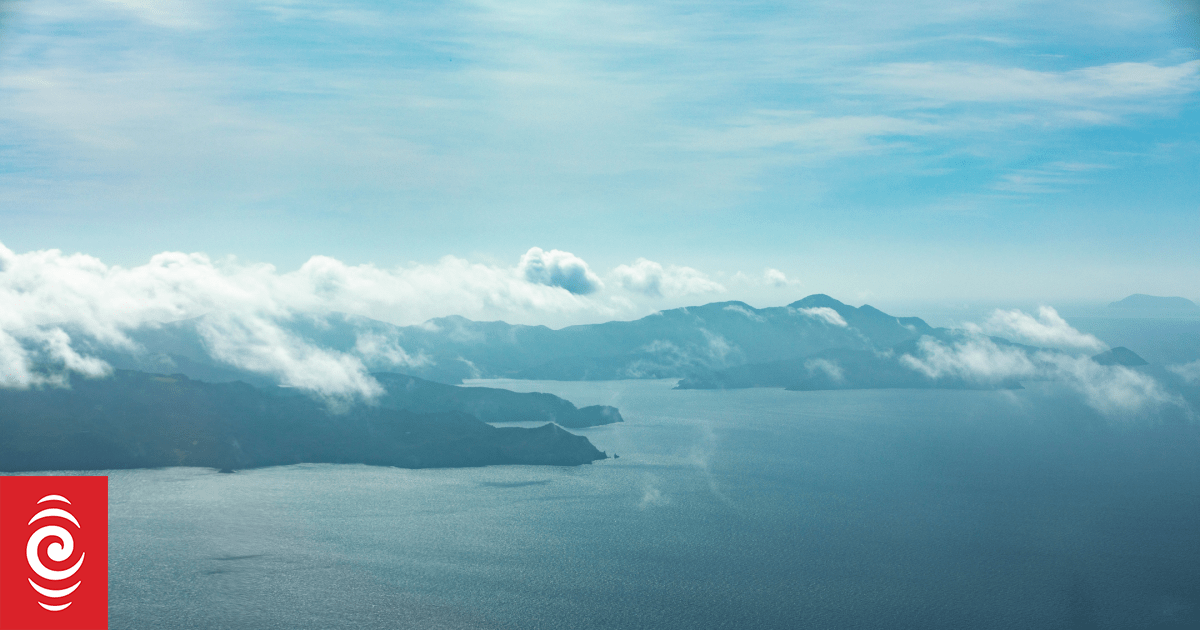The bill extends two existing marine reserves, where removing any marine life is prohibited. File photo.
Photo: RNZ / Cole Eastham-Farrelly
Legislation boosting marine protections in the Hauraki Gulf has passed its third reading, but not without criticism over a carve-out for commercial ring-net fishing in high protection areas.
The Hauraki Gulf Tīkapa Moana Marine Protection Bill builds on decades-long efforts to protect the gulf from the degradation of human activities.
It extends two existing marine reserves, where removing any marine life is prohibited, and establishes five seafloor protection areas (SPAs), where the bottom of the ocean can’t be significantly disturbed.
The bill also establishes 12 high protection areas (HPAs) where a range of activities, including most commercial and recreational fishing, are prohibited.
These HPAs have proven controversial after the coalition included a late stage amendment allowing commercial ring-net fishing operators exclusive access to two of them.
Opposition parties addressed this carve-out in their speeches today but all parties in Parliament ended up voting for the bill.
Environment Minister Tama Potaka said the bill had ushered in a bold new era of marine protection for one of the country’s most majestic seascapes.
“For years, communities and people across the political divide have despaired at the effects of the Gulf’s long-standing ecological decline leading to desolate kina barrens and habitat loss,” he said.
“Today, National has delivered the biggest new marine protection area in more than a decade for Aotearoa New Zealand. We’ve taken a once-in-a-generation step to turn around the health of the gulf by nearly tripling marine protection and creating 19 new protection areas. “
Potaka said the public could expect to see tāmure (snapper) and kōura (rock lobster) stocks rebuild in the coming decades, as well as richer kelp forests and seabird colonies.
On the contentious carve out, Potaka said limited, local ring-net fishing for common species would only be allowed in three percent of the total 800 kilometres of high protection areas and be up for review after three years.
“Overall, the legislation ensures we balance the needs of communities, the environment and the economy,” Potaka said.
Photo: Supplied / Shaun Lee
Maungakiekie-based Labour MP Priyanca Radhakrishnan said Labour would reverse the carve-out, if re-elected.
“Despite the environment select committee unanimously recommending to this house that the bill be passed with no substantive change, at the 11th hour, because of some active lobbying of the Minister of Oceans and Fisheries, we saw this government cave to that pressure and they have chosen to water down the protections in the original bill.”
“Labour, in government, will reverse the change that allows ring-net fishing in those HPAs,” Radhakrishnan said.
Auckland Central MP Chlöe Swarbrick said the carve-out let otherwise-good legislation down, and questioned the government’s rationale for making it in the first place.
“These were carve outs for ring-net fishers, which ministers justified as supposedly allowing for cheaper or more affordable fish whānau in South Auckland.
“We interrogated this abject ridiculousness at the committee of the whole stage and the minister could not provide us with any evidence whatsoever for those fundamentally baseless assertions.”
ACT MP Simon Court said MPs had considered a wide range of perspectives, including from conservation and fishing groups, and had found a position that “started the process of healing the gulf”.
“It makes sense that local commercial vessels can continue to fish in a sustainable way under the fisheries regulations and supply the people with with good quality and affordable food.”
New Zealand First MP Jenny Marcroft said her party supported the bill’s efforts to restore the health of the Hauraki Gulf before raising her concerns with wastewater overflows.
“If I just go back a few months to the 11 May, 64 beaches were either black or red flagged for waste contamination.
“Now, if we want to protect the gulf and all in this house want to do that, we need to call out what water care is doing because they are spilling into our beautiful harbour. Absolutely, totally unacceptable.”
Hauraki-Waikati MP Hana-Rāwhiti Maipi Clarke said Te Pāti Māori was disappointed its proposed amendments giving mana whenua mandatory consultation in the permit process had not been adopted.
“Our amendments were designed to ensure mana whenua have input into these applications for permits…and the need to ensure that new breaches of Te Tiriti o Waitangi do not occur against iwi of Hauraki and Tīkapa Moana.”
The legislation will come into force before the end of the year, with a new team of Department of Conservation marine ranges on the water now to educate the public and monitor compliance.
Further investment, funded through the International Visitor Levy, to protect the Hauraki Gulf will be announced soon.
Sign up for Ngā Pitopito Kōrero, a daily newsletter curated by our editors and delivered straight to your inbox every weekday.

